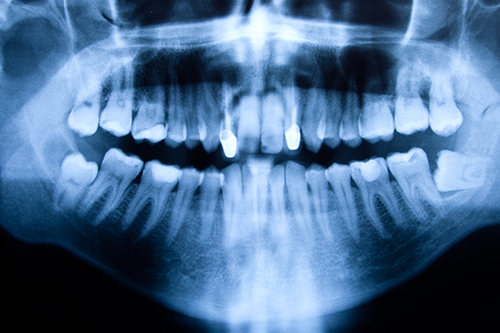Baltimore's Leading Secure Document Shredding Partner with Next-Day Service & Flexible Options – No Contracts, No Hidden Fees - Schedule Now
Why is Silver a Hazardous Waste?
Did you know that silver is a form of hazardous waste? When most people think of silver, they think of precious jewelry and expensive metals. However, silver can also be used in a variety of medical instances, such as x-rays. Unfortunately, the effect of silver on the human body after consumption can be problematic in a number of ways. It’s important to dispose of such a hazardous material in the proper fashion to keep everyone safe. First, let’s learn a bit more about why silver is so dangerous. 
What Does Silver do?
According to the EPA, silver is listed as a hazardous waste due to its level of toxicity. Small, nearly undetectable traces of silver can be found in our food and water, but consumption of this doesn’t necessarily lead to any kind of health complication. However, if the human body happens to consume more than it is used to, it can cause a skin condition called argyria. Otherwise known as silver poisoning, it can leave skin turning grey or blue. Thankfully, it is a cosmetic issue and does not risk livelihood. The EPA has still listed it as biohazardous waste, though, meaning it must be disposed of through silver reclamation services.
Why is a Disposal Service so Important?
The Maryland Department of the Environment decides on where you should dispose of your hazardous waste--in this case, silver that is leftover from medical procedures. BWS has been listed as a Destination Facility, meaning it is certified to handle the disposal of hazardous waste. It might be tempting to rid yourself of such material by simply throwing it away or pouring x-ray developer down the drain. However, this practice is illegal. HIPAA compliances require proper disposal in order to keep hazardous waste out of drinking water and food consumption. To protect the public, you must dispose of silver through a Destination Facility.
What Else Does Silver Impact?
Silver can impact the environment to a significantly negative degree. If too much silver is within bodies of water, for example, fish will begin to die out due to issues with their cardiovascular systems. Likewise, their reproductive systems could be affected. This would lead to potential collapses of ecosystems. It’s important to remember that such impacts can be prevented easily by contacting your local Destination Facility. In order to protect humanity and the environment, dispose of your hazardous waste, like silver, in the proper fashion.
Protect your community by working with BWS, Inc.!
We are trusted by over 8,000 healthcare professionals per month. BWS provides local hazardous silver reclamation services with competitive prices. We are the best at what we do, and we’re sure to give you the service that you truly need. If you’re looking to get rid of your silver hazardous waste, call 800-660-6581. You can also follow us on Facebook, Twitter, and Google+.
Ready to get started?
We offer a variety of competitively priced service options with no contracts or hidden fees. Request a free quote.
Our Dedication to Providing the Highest Quality Regulated Waste Services
is Shown in What Our Clients Say About Our Work
We provide an outstanding value and service to our regulated waste customers and pride ourselves over the last 50 years on our 100% customer satisfaction with 99% customer retention ratio.
Paul R Miller, D.D.S. and Team
ZytoGen Patient Services
Akbar Masood, D.D.S.
Chris Donaldson
Dharani Jasthi
Tomicka Jackson-George, D.M.D.
Louis Sachs, D.D.S.
Kate Blair English
Dave Ryan
Kerry Owens, Avalon Plastic Surgery
Jamie Fleming, National Spine & Pain Centers
Keith Roberts, Biomatrix Specialty Pharmacy
Mireia Pedragosa Marin, Synergy Research
Rebecca Crouse, Randolph Macon Academy
Melissa C, Patriot Chiropractic
Dr. Rosario Ignacio
Dr. Thomas Lutz, Odenton Family Dentistry
Dr. Louis Sachs, DDS
Eric B.
Brenda Shah
Stay connected - Be the first to know!
Get BWS news and promotions straight to your inbox
Don't worry. We won't sell your information!




